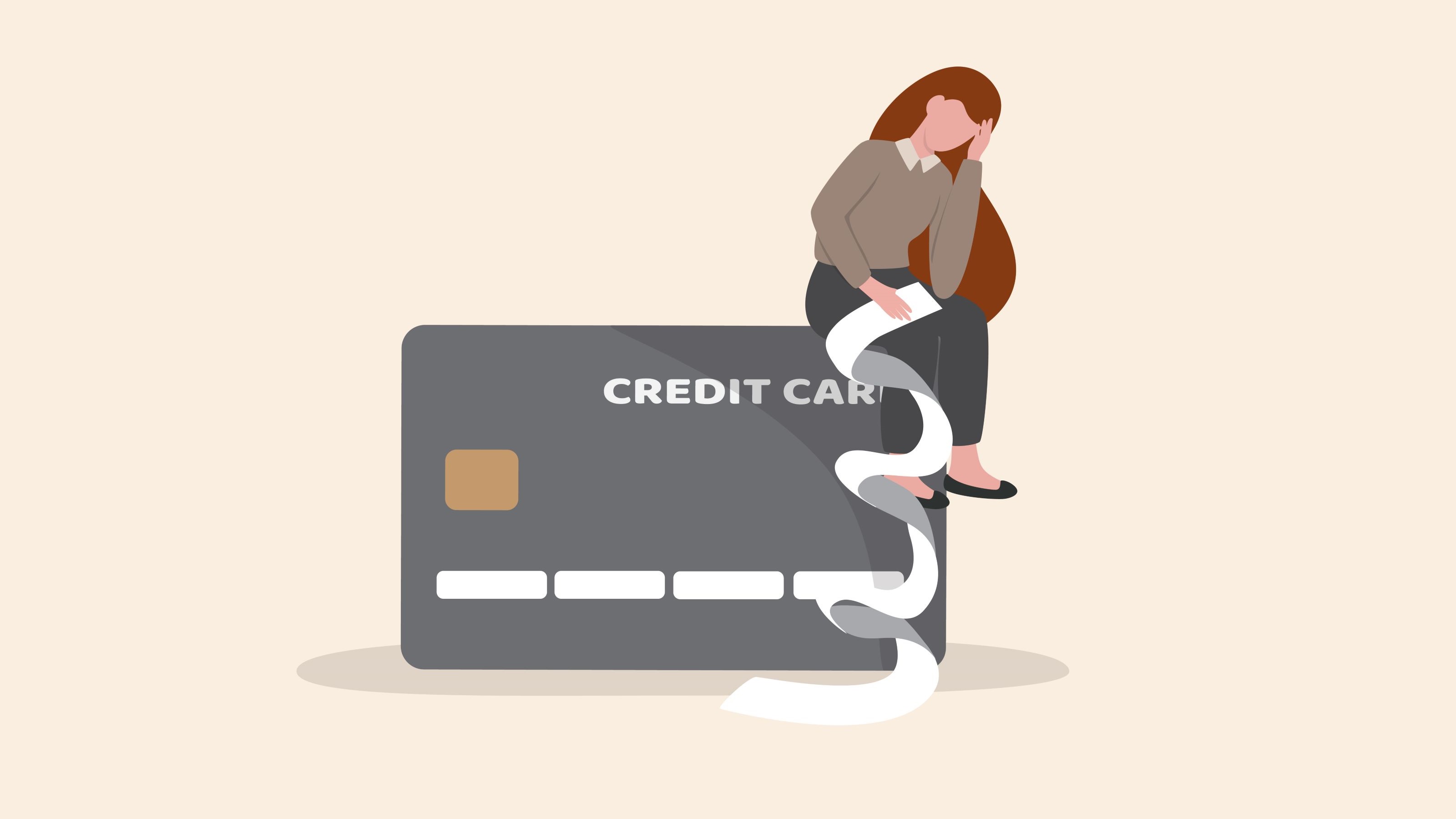Credit Card Use Spikes for Cash-Strapped Consumers
Credit card use amps up as consumers reckon with inflation and higher interest rates; 39% of Americans living paycheck-to-paycheck, study shows.


Profit and prosper with the best of Kiplinger's advice on investing, taxes, retirement, personal finance and much more. Delivered daily. Enter your email in the box and click Sign Me Up.
You are now subscribed
Your newsletter sign-up was successful
Want to add more newsletters?

Delivered daily
Kiplinger Today
Profit and prosper with the best of Kiplinger's advice on investing, taxes, retirement, personal finance and much more delivered daily. Smart money moves start here.

Sent five days a week
Kiplinger A Step Ahead
Get practical help to make better financial decisions in your everyday life, from spending to savings on top deals.

Delivered daily
Kiplinger Closing Bell
Get today's biggest financial and investing headlines delivered to your inbox every day the U.S. stock market is open.

Sent twice a week
Kiplinger Adviser Intel
Financial pros across the country share best practices and fresh tactics to preserve and grow your wealth.

Delivered weekly
Kiplinger Tax Tips
Trim your federal and state tax bills with practical tax-planning and tax-cutting strategies.

Sent twice a week
Kiplinger Retirement Tips
Your twice-a-week guide to planning and enjoying a financially secure and richly rewarding retirement

Sent bimonthly.
Kiplinger Adviser Angle
Insights for advisers, wealth managers and other financial professionals.

Sent twice a week
Kiplinger Investing Weekly
Your twice-a-week roundup of promising stocks, funds, companies and industries you should consider, ones you should avoid, and why.

Sent weekly for six weeks
Kiplinger Invest for Retirement
Your step-by-step six-part series on how to invest for retirement, from devising a successful strategy to exactly which investments to choose.
Consumers are increasingly relying on credit cards, racking up debt they can't pay off, according to a new survey from Quicken Inc. that looks at consumer behaviors and sentiments surrounding credit card debt.
According to the survey, 35% of Americans won’t be able to pay off their balances by the end of the year and high-earners (with annual incomes of at least $150,000) aren’t exempt.
With rising interest rates, inflation, and unemployment painting current economic conditions, many people resort to using credit cards as a way to cover expenses. According to Quicken Inc.’s survey, 39% of Americans live paycheck-to-paycheck and can’t see a way out. 55% of households earning under $50,000 annually and 49% of Millennials are the largest groups primarily resonating with this sentiment. Here’s why that’s a problem:
From just $107.88 $24.99 for Kiplinger Personal Finance
Become a smarter, better informed investor. Subscribe from just $107.88 $24.99, plus get up to 4 Special Issues

Sign up for Kiplinger’s Free Newsletters
Profit and prosper with the best of expert advice on investing, taxes, retirement, personal finance and more - straight to your e-mail.
Profit and prosper with the best of expert advice - straight to your e-mail.
Lower-earning households feel the brunt of the financial squeeze, and it’s resulting in people taking on more debt at a higher cost to meet basic financial demands. If people are already struggling to close the income gap between paychecks then how will they afford to pay record-high interest rates? Average credit card interest rates reached a high of 20.68% — the highest recorded since the St. Louis Federal Reserve began tracking credit card interest rates in 1994.
Working more and spending less
For many survey respondents that means working more and spending less. Quicken’s survey found that 62% of employed Americans are considering a side gig in the next six months Along with 31% planning to look for a second job in the next six months. Reducing spending is also a priority, with 25% of Americans recognizing a need to cut back as they’re already buried in credit card debt.
Eric Dunn, CEO of Quicken, shared this regarding the survey results:
“Our research shows an economic divide that is widening among Americans — there is a large group of hard-working people who are still struggling financially…many of them are living paycheck to paycheck and relying on credit cards they may not be able to afford. It’s clear that strong financial planning is more important than ever to help Americans break this cycle and start closing the gap.”
However, it isn’t solely lower-income households plagued by the compounding interest of credit card debt. Roughly 34% of Americans with an annual income over $150,000 are also having more difficulty paying off their credit cards this year compared to 2022. A higher income isn’t necessarily going to help you outpace excessive spending in this economic environment.
What to do if credit card debt is overwhelming
If you’re dealing with the pressure of credit card debt, take these key steps to get a better handle on your payments. Many consumers opt to pay off their credit cards using a personal loan for a lower fixed interest rate and fixed payments. You could also do a balance transfer to take advantage of promotional 0% APR for several months. It’s also best to use a strategy like the avalanche or snowball method to help you pay off debt faster.
Related Content
Profit and prosper with the best of Kiplinger's advice on investing, taxes, retirement, personal finance and much more. Delivered daily. Enter your email in the box and click Sign Me Up.

Seychelle is a seasoned financial professional turned personal finance writer. She’s passionate about empowering people to make smart financial decisions by combining 10 years of finance industry experience with solid research and a wealth of knowledge. Seychelle is also a Nav-certified credit and lending expert who has explored money topics such as debt consolidation, budgeting, credit, and lending in her work for publications including GOBankingRates, LendEDU, and Credible.
-
 Dow Adds 1,206 Points to Top 50,000: Stock Market Today
Dow Adds 1,206 Points to Top 50,000: Stock Market TodayThe S&P 500 and Nasdaq also had strong finishes to a volatile week, with beaten-down tech stocks outperforming.
-
 Ask the Tax Editor: Federal Income Tax Deductions
Ask the Tax Editor: Federal Income Tax DeductionsAsk the Editor In this week's Ask the Editor Q&A, Joy Taylor answers questions on federal income tax deductions
-
 States With No-Fault Car Insurance Laws (and How No-Fault Car Insurance Works)
States With No-Fault Car Insurance Laws (and How No-Fault Car Insurance Works)A breakdown of the confusing rules around no-fault car insurance in every state where it exists.